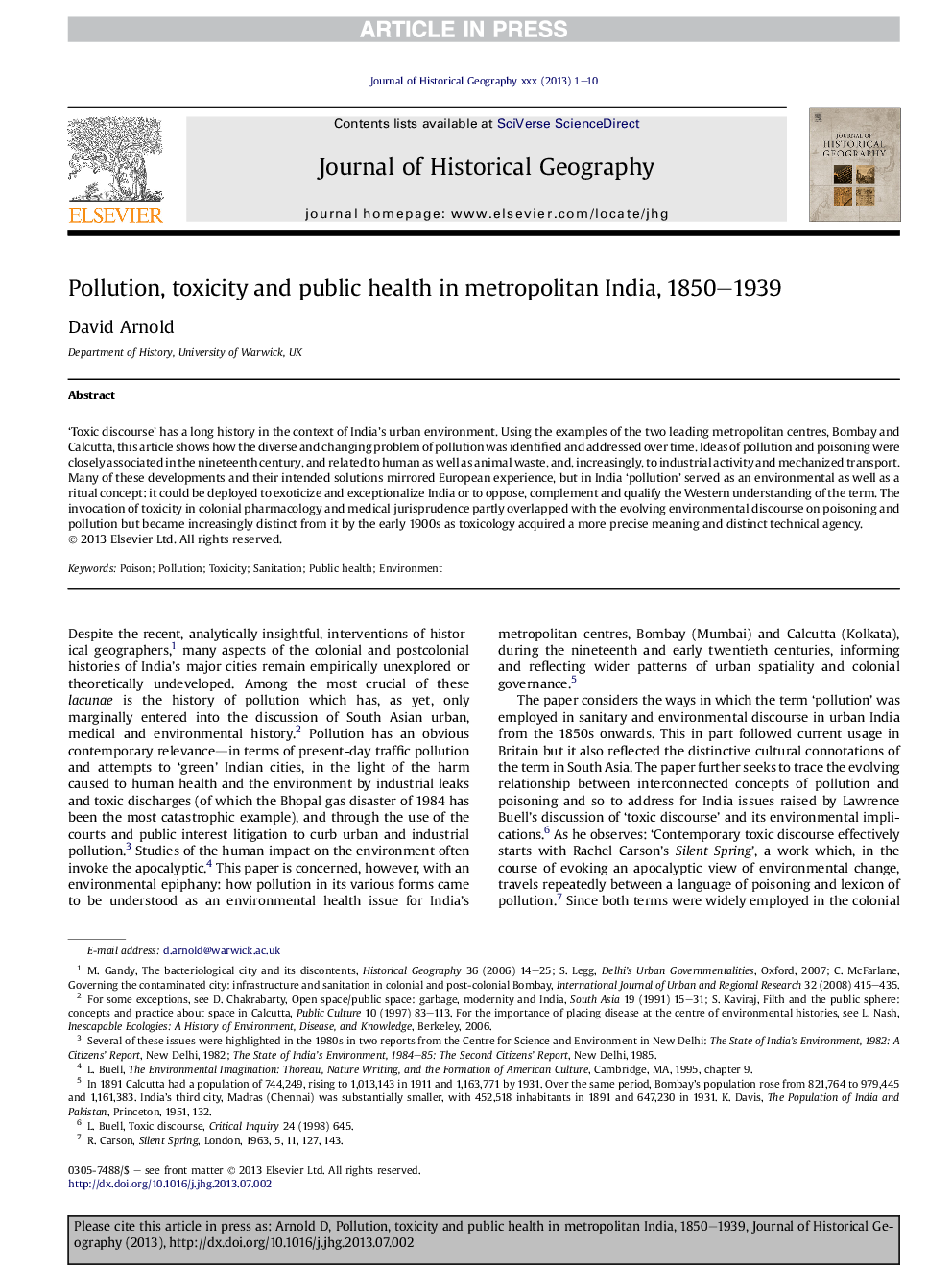| Article ID | Journal | Published Year | Pages | File Type |
|---|---|---|---|---|
| 7448431 | Journal of Historical Geography | 2013 | 10 Pages |
Abstract
'Toxic discourse' has a long history in the context of India's urban environment. Using the examples of the two leading metropolitan centres, Bombay and Calcutta, this article shows how the diverse and changing problem of pollution was identified and addressed over time. Ideas of pollution and poisoning were closely associated in the nineteenth century, and related to human as well as animal waste, and, increasingly, to industrial activity and mechanized transport. Many of these developments and their intended solutions mirrored European experience, but in India 'pollution' served as an environmental as well as a ritual concept: it could be deployed to exoticize and exceptionalize India or to oppose, complement and qualify the Western understanding of the term. The invocation of toxicity in colonial pharmacology and medical jurisprudence partly overlapped with the evolving environmental discourse on poisoning and pollution but became increasingly distinct from it by the early 1900s as toxicology acquired a more precise meaning and distinct technical agency.
Related Topics
Social Sciences and Humanities
Arts and Humanities
History
Authors
David Arnold,
